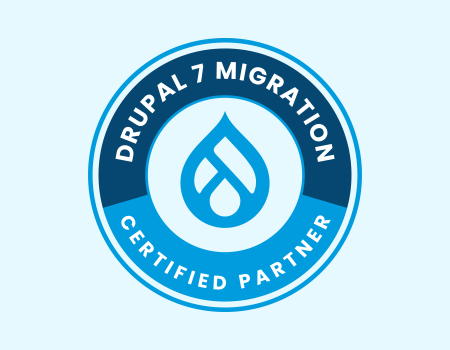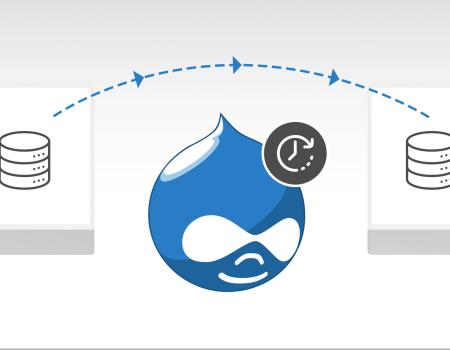What if you don't want to leave Drupal 7?
If your website is powered by Drupal 7, you should read this article.
As you probably know, the Drupal organization led by Dries Buytaert (founder of Drupal) has decided to retire Drupal 7 in favor of what they consider a more modern version of Drupal, which is labeled Drupal 8.
The end of life (EOL) or retirement date for Drupal 7 had originally been sometime in 2020 and several organizations rushed to get ahead of the curve and out of Drupal 7. Then, the deadline was moved to 2021. Interestingly, it was announced that Drupal 8 would also be retired on the exact same date as Drupal 7. So, both D7 and D8 would retire at the same time.
Then, in a twist of fate, yet another announcement came stating that the retirement date for Drupal 7 has been moved yet again to November 2022 but, ironically, the end of life for D8 remains at November 2021.
The irony is that Drupal 8 will have taken more time to develop in the first place than the time it was actually in existence. Drupal took 8 years to build but will only have been in service for 6 years. The other irony is that D7 will outlive D8. D8 will be retired and D7 will still be supported.
But that is not the purpose or point of this blog post.
The point of this article is that not every organization has (or had) the time or money to migrate out of Drupal 7 by the deadline set by Drupal leadership. So, it was forcing organizations into a precarious position. Should they go into debt and stress to force their way into D8 or should they take a chance and stay in D7 knowing that it will not be supported?
Many organizations were feeling bitter and disgruntled that they were forced into this position. So, the question begins to arise ...
What if I want to stay in D7?
Suppose you have invested hundreds of thousands, perhaps even millions, of dollars building and improving your D7 site over the past decade. You like where it is. You don't want to change it. You don't have the time to change it. You don't have the budget to change it. After all, it could cost as much to migrate to D8 as all the money you have invested building and maintaining your D7 site since it launched 10 years ago.
There are alternatives. One alternative is to stay in D7 and cross your fingers that it doesn't break. Another alternative is to migrate into a content management system (CMS) that was a clone of Drupal 7 and then began to take a life of its own. We are talking about Backdrop CMS.
Backdrop CMS is a fork of Drupal 7
A fork is basically a Git term for copying a piece of open source code. Once copied, you can modify that code and take it into a new direction for a new purpose.
Backdrop CMS is a copy of Drupal 7 that has taken on its own path to become a faster, less-complex version of Drupal 7. It was modernized and improved. It is a lighter, cleaner, faster, evolution of D7 rather than a complete rewrite, which is D8.
Drupal 8 is a radically different kind of CMS built on a completely different platform. In fact, when you migrate from Drupal 7 to Drupal 8, you basically have to rewrite, redesign, and rebuild the entire website from scratch. This could be extraordinarily expensive (possibly well into the millions of dollars) and time-consuming (possibly well over a year) to perform.
An alternative to leaving D7
Backdrop CMS is an alternative to moving out of Drupal 7 into Drupal 8. If you like Drupal 7 and don't really want to change, but also don't want to be left without support, then Backdrop CMS might be a good alternative.
Backdrop has included the most popular features of Drupal 7 and removed the bulky features that were not popular or well used.
Backdrop CMS was developed for those with comprehensive needs but not necessarily comprehensive budgets. If you are on Drupal 7, moving to Backdrop is easier and less expensive than moving to Drupal 8.
Who forked and founded Backdrop?
Backdrop was created by two former employees of Lullabot and Chapter Three - two renowned Drupal training companies. It was founded by Jen and Nate Lampton who were Drupal instructors and authors of books on Drupal. Nate was co-author of the first O'Reilly book, "Using Drupal." Nate and Jen were (are) core contributors to Drupal 7 and early contributors to Drupal 8. Needless to say, the Backdrop founders were absolute experts in Drupal and intimately familiar with both D7 and D8.
The founders of Backdrop were masters of Drupal and understood it really well. They love Drupal and built their careers on Drupal. But, they realized it was going in what they considered the wrong direction. Their experience building Drupal 8, and the leadership decisions that went into it, led them to decide to fork Drupal 7 and create a new content management system.
Claimed benefits of Backdrop
Backwards compatible. Easier updates. Not like moving to D8. Simplicity. Code that most people understand. Only features that benefit the majority. Less bulky. Extensible, customizable. APIs. Speed. Structured for lower budgets. Shouldn't need CDNs and performance accelerators. Faster than Drupal.
The Backdrop CMS mission enables people to build highly customized websites, affordably, through collaboration and open source software. More powerful and structured than WordPress. Intended for web sites, not web apps, not mobile apps.
Listen to the founder's philosophy behind Backdrop CMS:
https://www.videodrupal.org/video/20190523/why-fork-drupal-philosophy-behind-backdrop-cms
If you are thinking of sticking with Drupal 7 or perhaps shifting to Backdrop CMS rather than migrating to D8 or D9, please give us a call, perhaps we can help.



